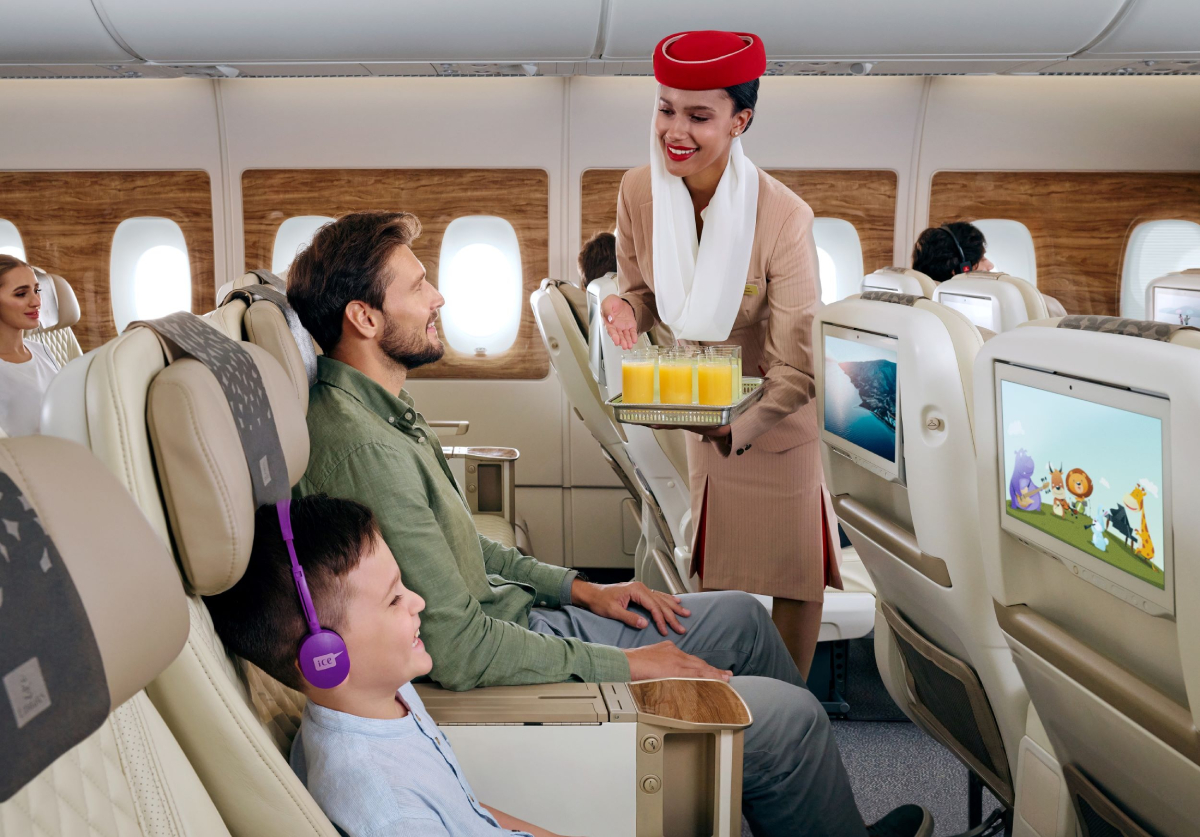Access selected deals available with budget and full-service airlines
Lock any airfare that sounds great. You don’t lose anything if you cancel it
Call us anytime for any assistance. We do not go into hibernation
Your personal and financial information stays secure with us
Emirates, the flag carrier of the United Arab Emirates, is one of the world’s leading airlines, renowned for its luxury, innovation, and global connectivity. Established by the Dubai government on May 25, 1985, and commencing operations on October 25, 1985, Emirates is headquartered at Dubai International Airport (DXB). Wholly owned by the Investment Corporation of Dubai, the airline operates over 3,600 weekly flights to 150 destinations across 80 countries, carrying approximately 56 million passengers annually as of 2025. With a fleet of 260 wide-body Airbus and Boeing aircraft, Emirates is the largest operator of Airbus A380s and Boeing 777s. Known for its award-winning inflight entertainment, premium cabins, and exceptional service, Emirates embodies Dubai’s vision of excellence, fostering cultural exchange and global trade through its hub at the world’s busiest international airport.

Emirates began with two leased aircraft—a Boeing 737-300 and an Airbus A300B4—flying to Karachi and Mumbai from Dubai. Backed by a $10 million investment and led by inaugural chairman Sheikh Ahmed bin Saeed Al Maktoum, the airline quickly expanded, adding destinations like Delhi, Colombo, and London by 1987. The introduction of Airbus A310s in 1987 and the launch of Emirates SkyCargo in 1985 marked early growth. By 1990, Emirates served 12 destinations, and in 1996, it became a launch customer for the Boeing 777-200, solidifying its commitment to modern wide-body aircraft.
The 2000s were transformative, with Emirates ordering 58 Airbus A380s in 2005 and launching its first A380 flight to New York in 2008. The airline’s iconic Terminal 3 at DXB, opened in 2008, became the world’s largest airport terminal, featuring exclusive A380 facilities. Emirates weathered the 2008 financial crisis and the 2020 COVID-19 pandemic, which grounded its passenger fleet for three months, by leveraging cargo operations and repatriation flights. In 2023, Emirates reported a record $4.7 billion profit, driven by a 30% passenger increase to 51.9 million, and in 2024, it carried 56 million passengers, reinforcing its recovery.
Emirates operates an all-wide-body fleet of 262 aircraft, including 118 Airbus A380s, 134 Boeing 777-200LR/300ERs, and 10 Boeing 777-8/9s, with 65 Airbus A350-900s on order for delivery starting in 2025. The A380s serve high-demand routes like London Heathrow, Sydney, and Los Angeles, while Boeing 777s cover destinations such as New York (JFK), Tokyo (NRT), and Cape Town. Emirates operates over 3,600 weekly flights, with 1,500 weekly departures from Dubai, including 28 weekly flights to the U.S. (e.g., 14 to JFK, seven to LAX). The airline’s cargo division, Emirates SkyCargo, operates 11 Boeing 777 freighters, handling 1.8 million tons annually to 75 destinations, supporting global trade with temperature-controlled pharma transport.
Dubai International Airport, the world’s busiest for international passengers, facilitates seamless connections, though its Terminal 3 can experience congestion during peak hours. Emirates’ codeshare with flydubai, a sister airline, offers access to 100 additional destinations, while partnerships with Qantas and United enhance routes to Australia and the Americas. The airline’s “Stopover Dubai” program provides hotel stays, visas, and tours to attractions like the Burj Khalifa, encouraging passengers to explore the UAE.